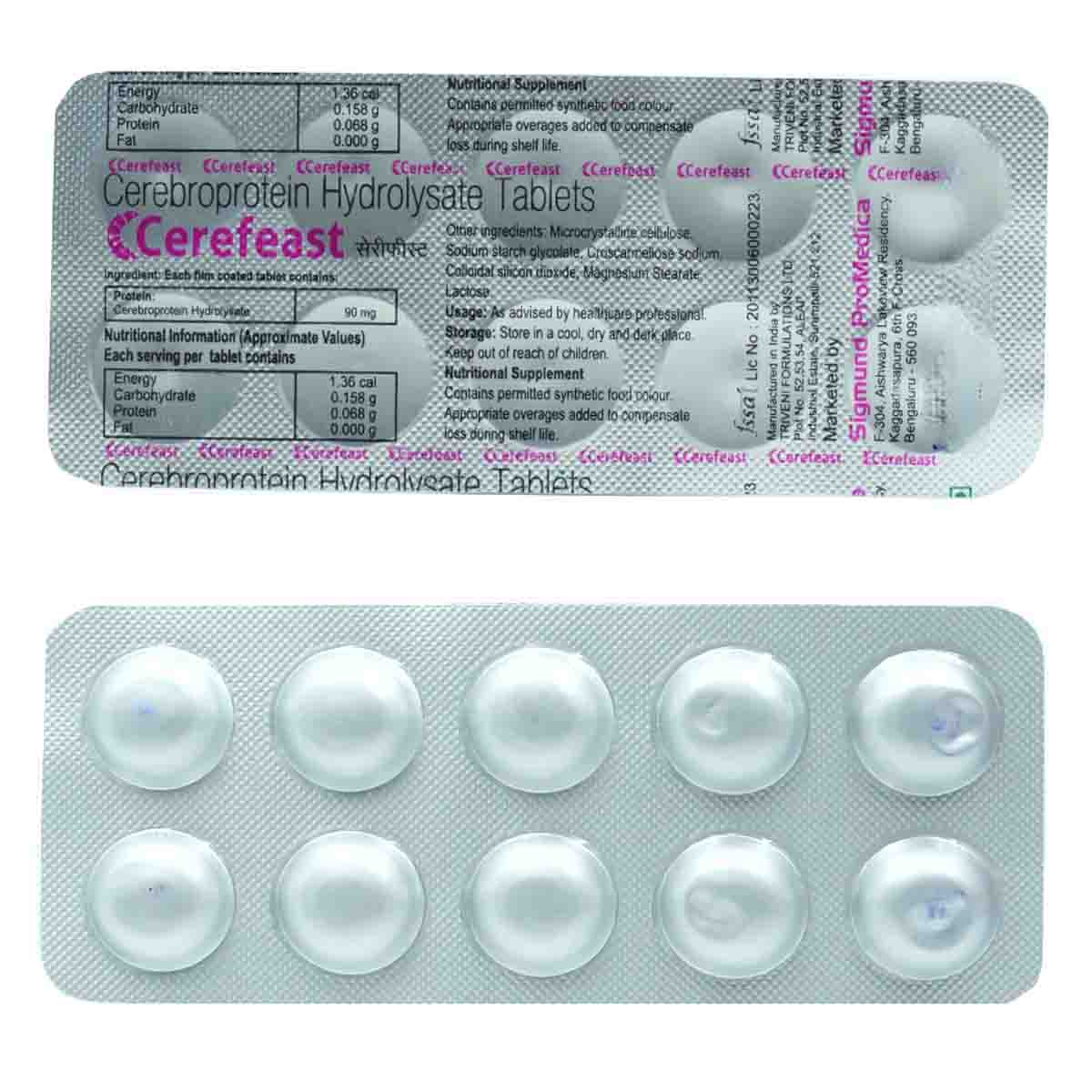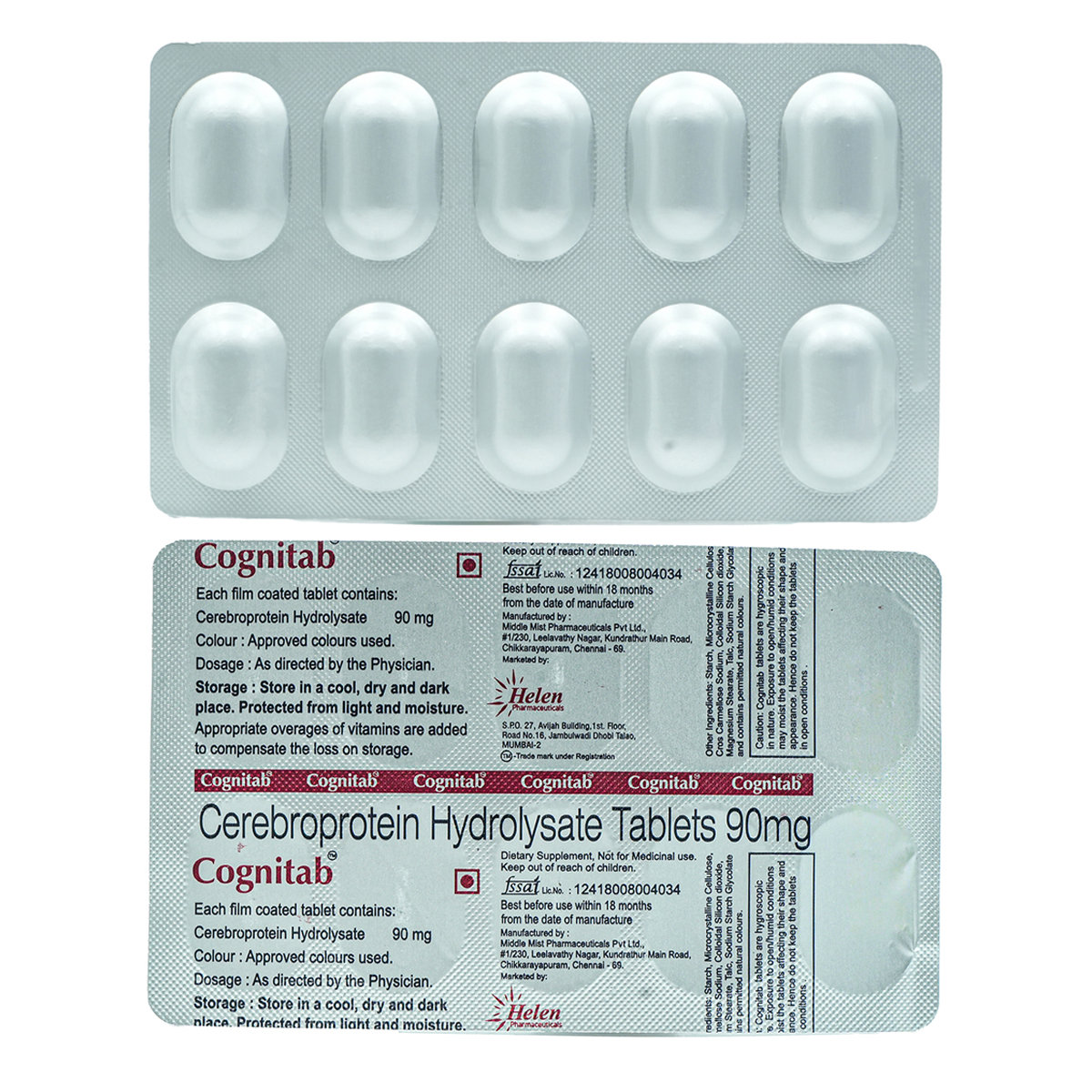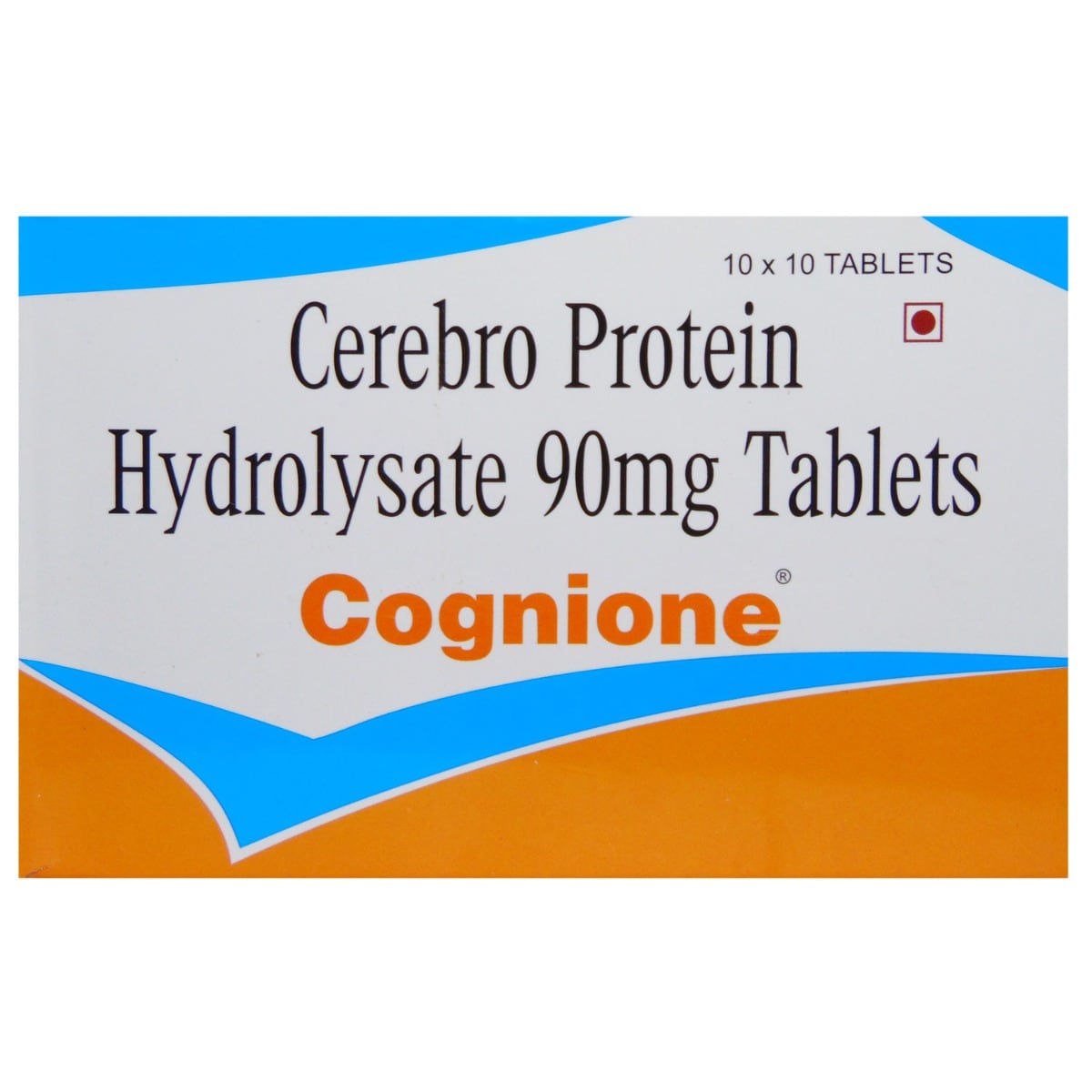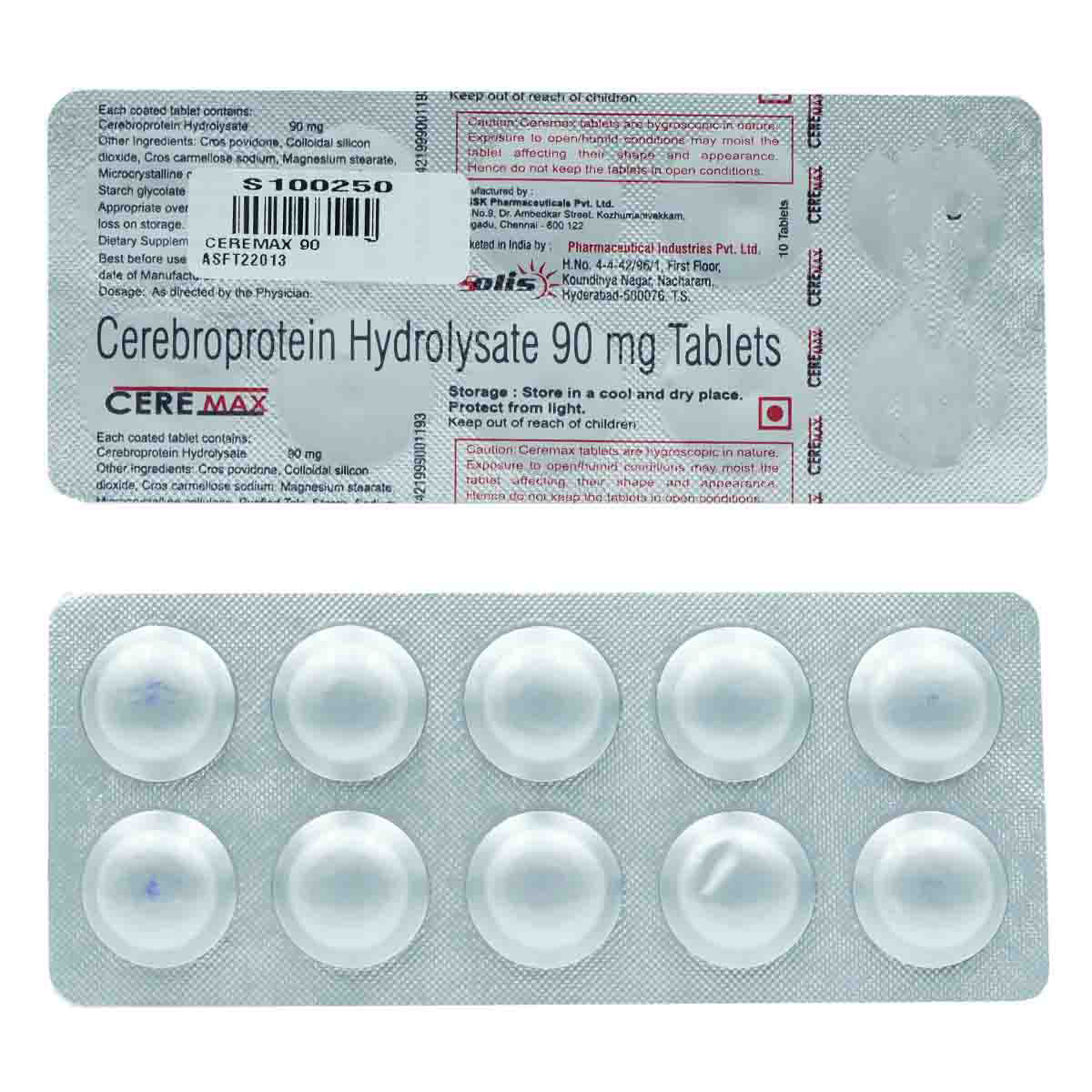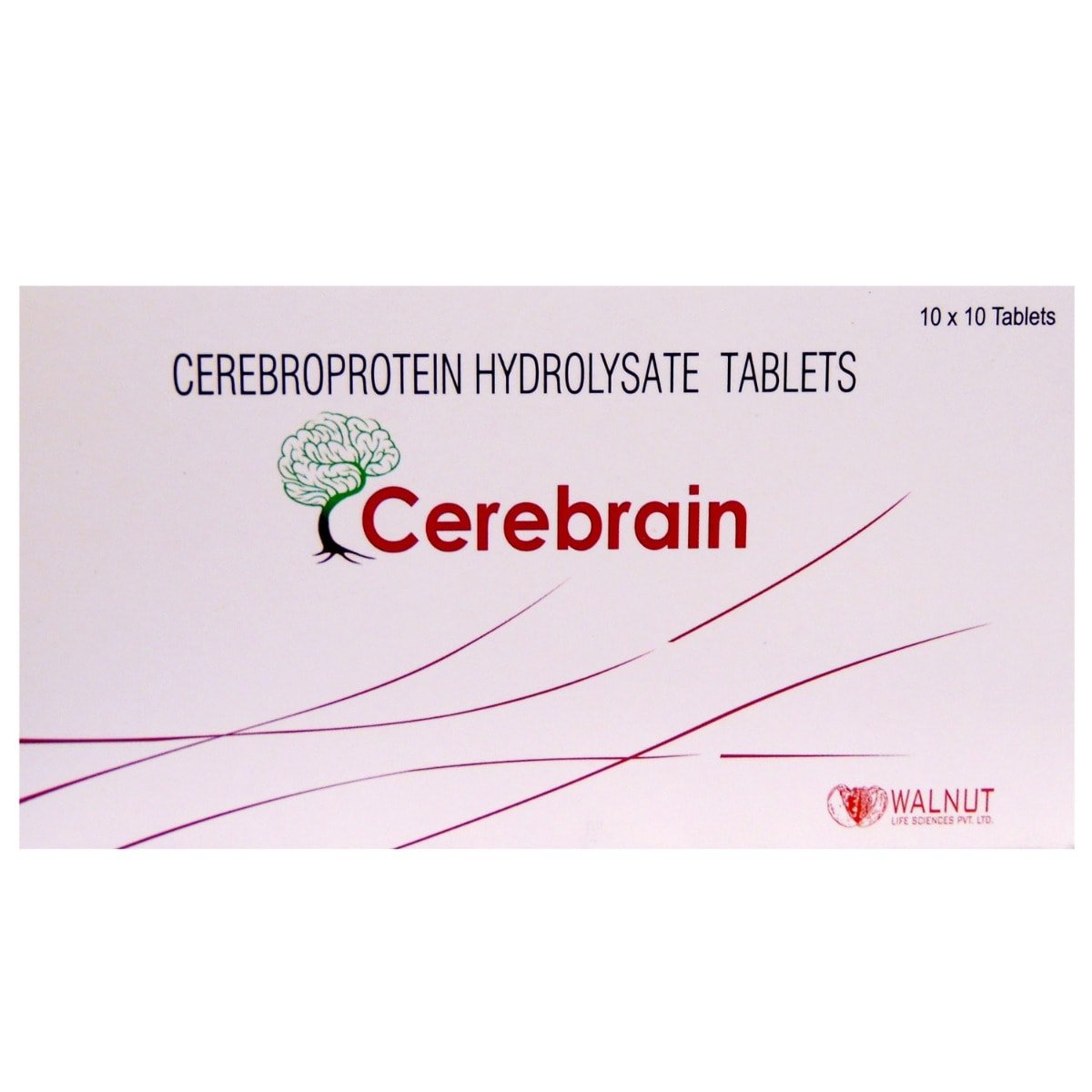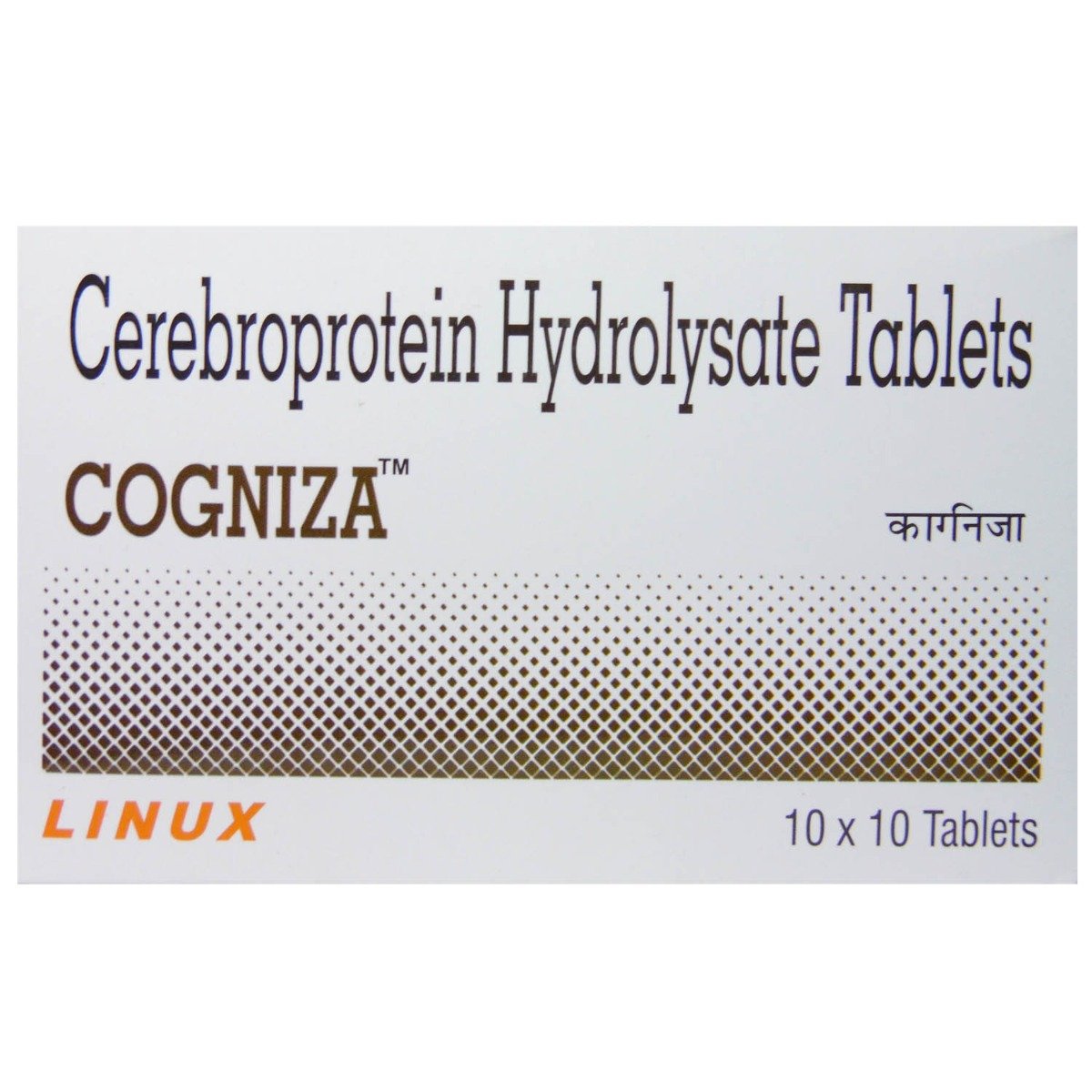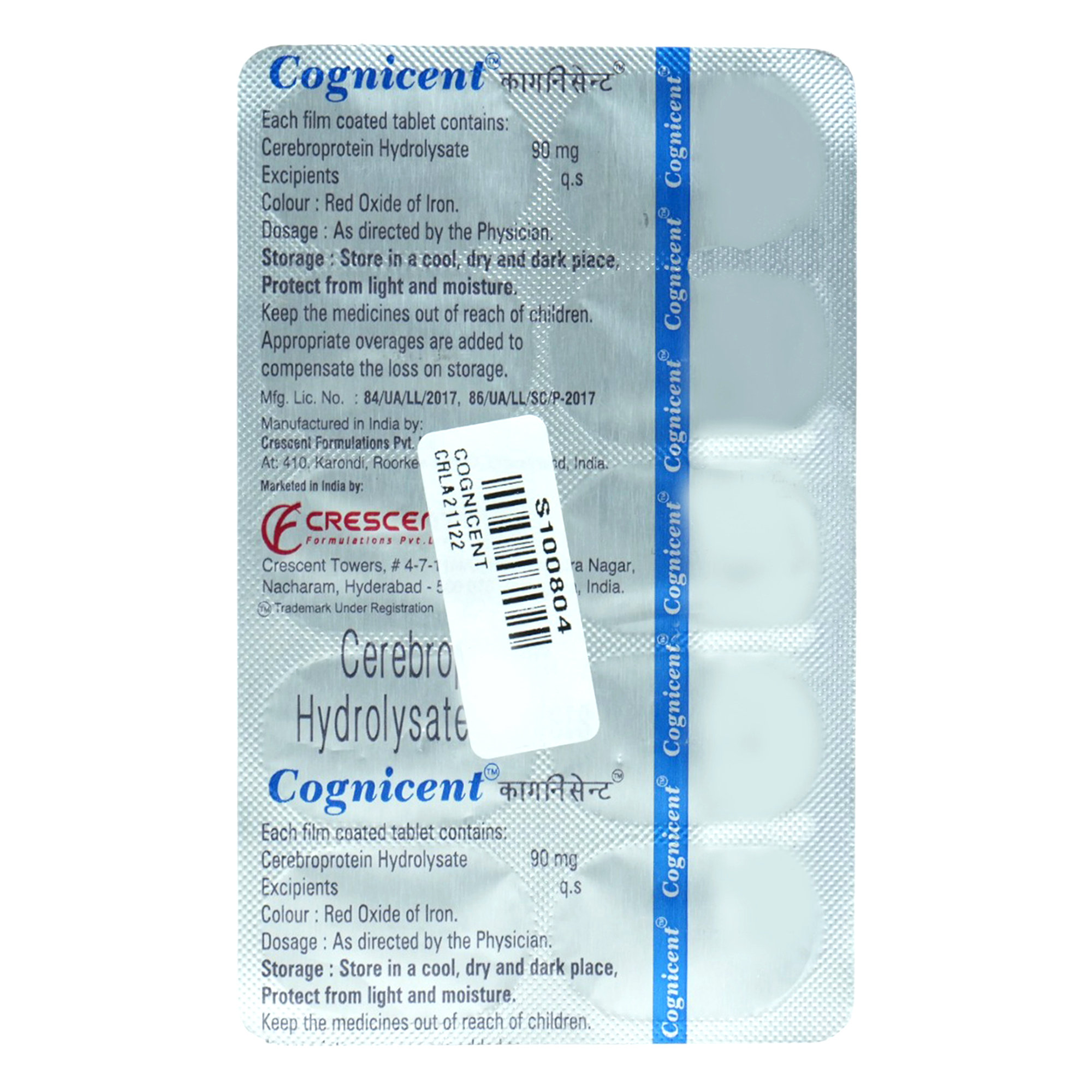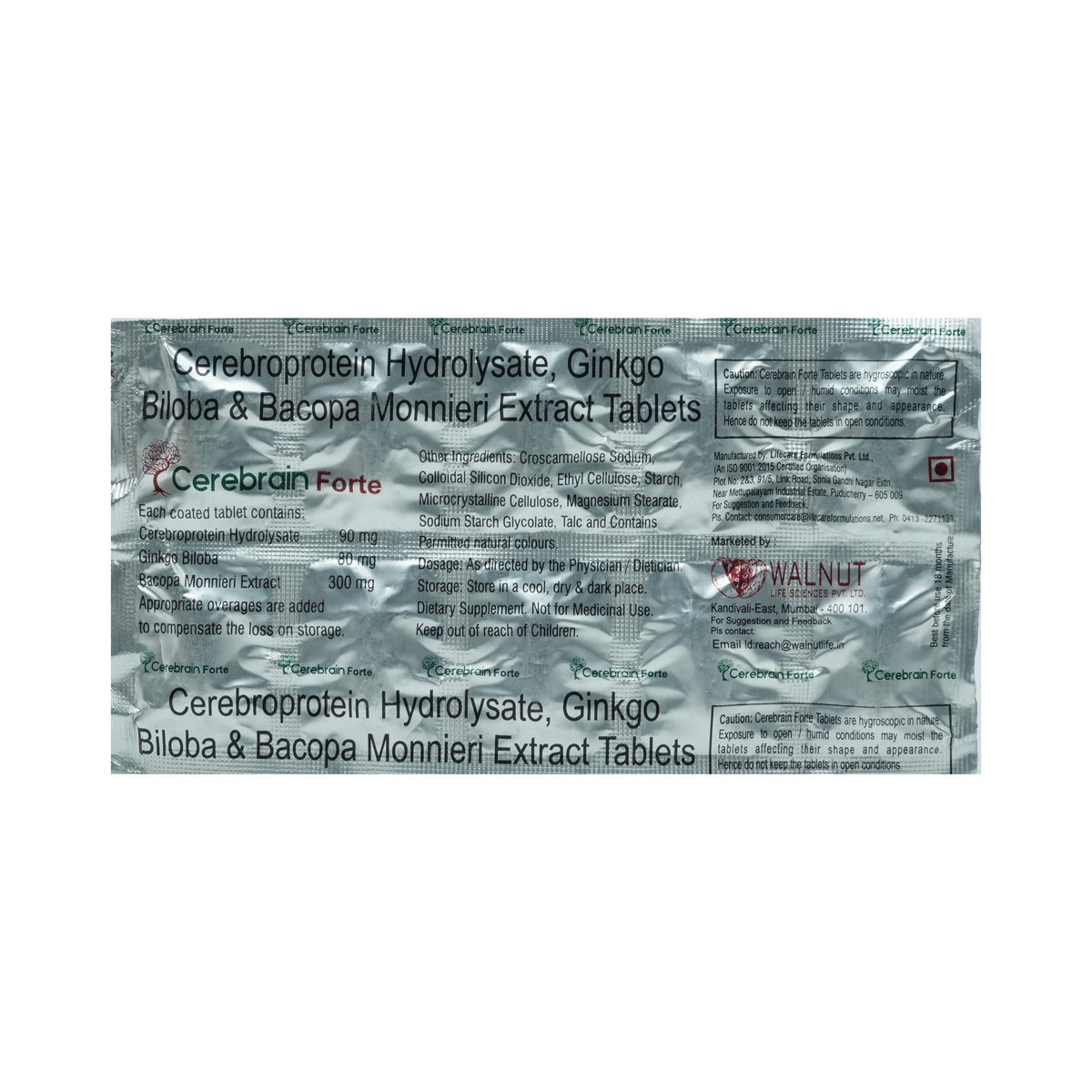Cognifast Tablet
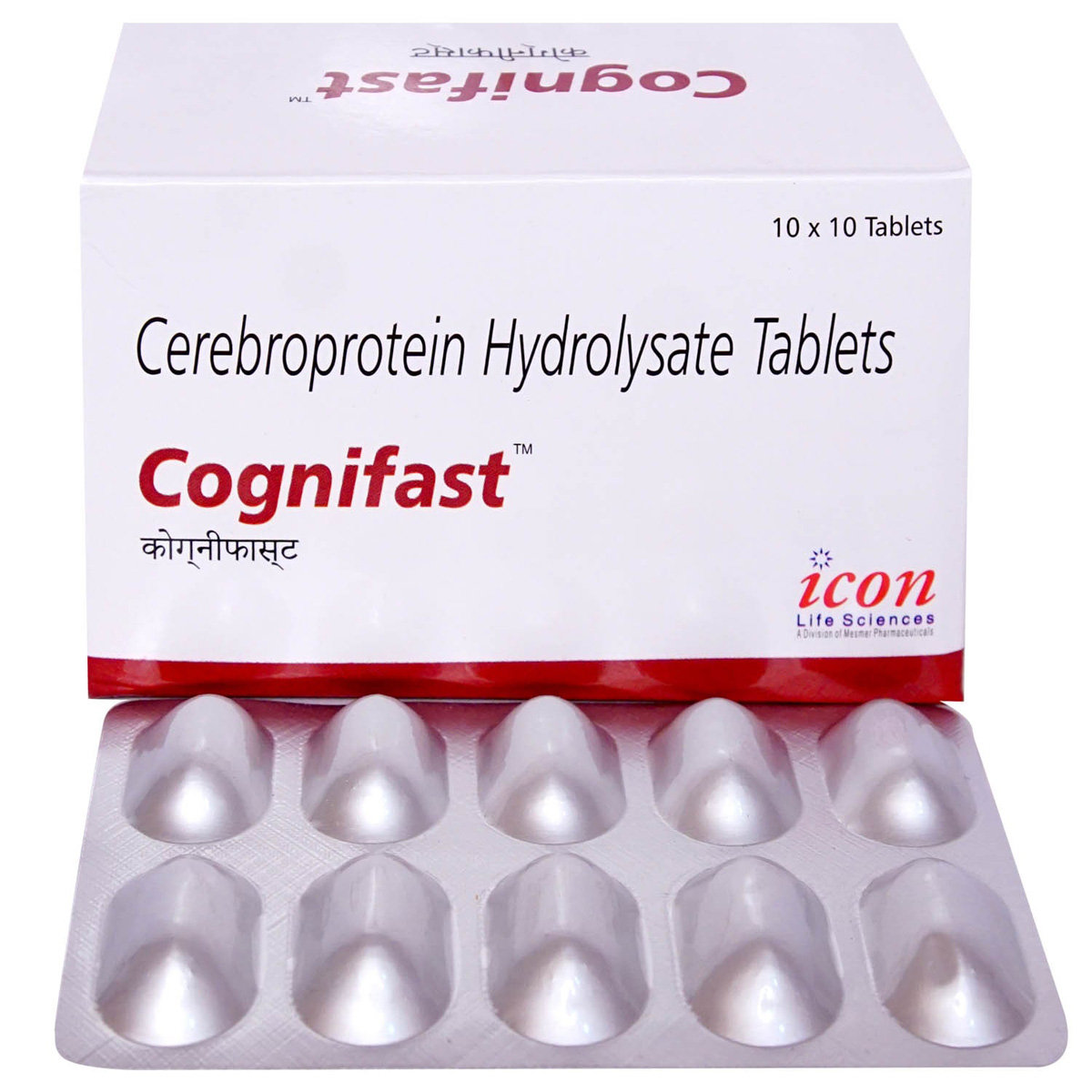
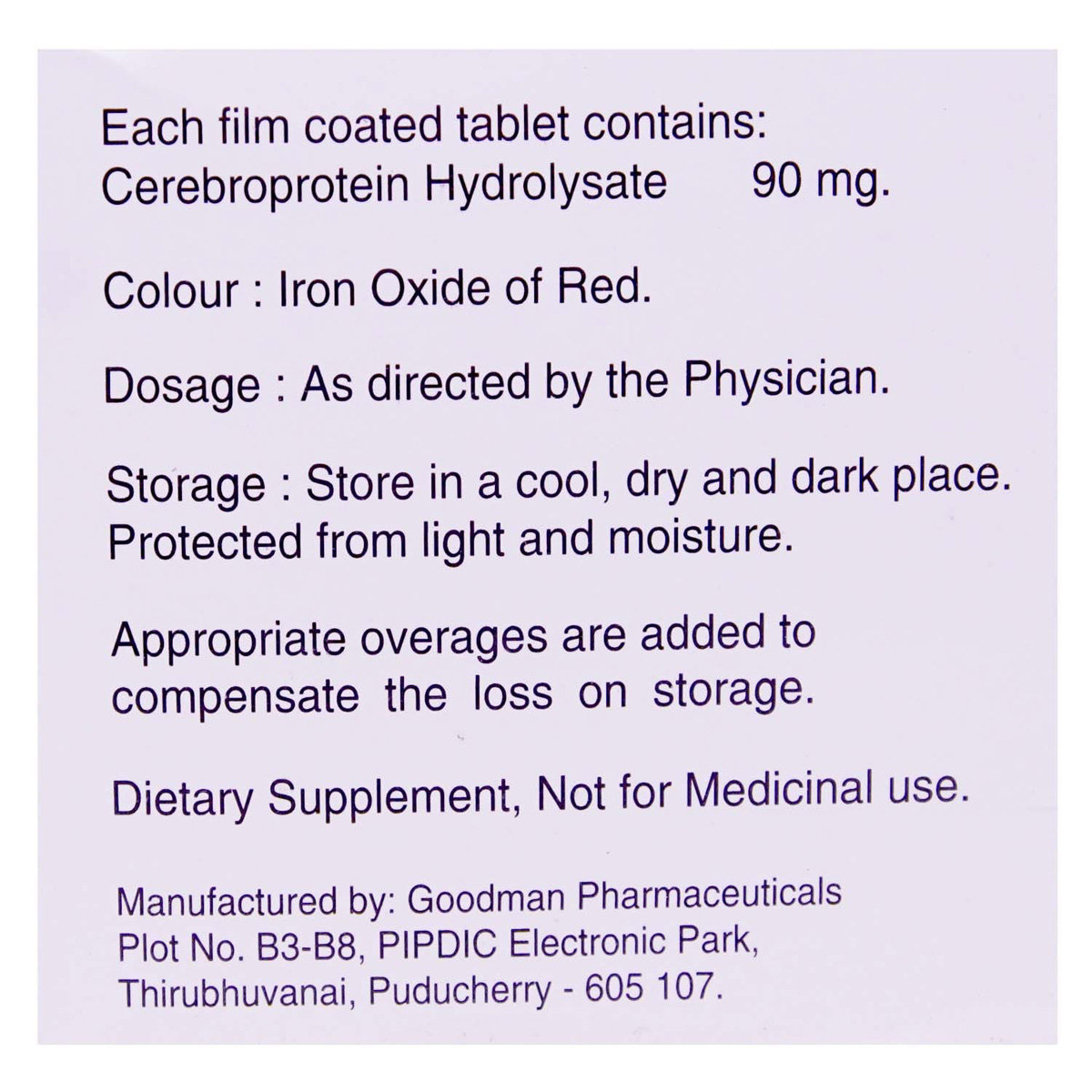
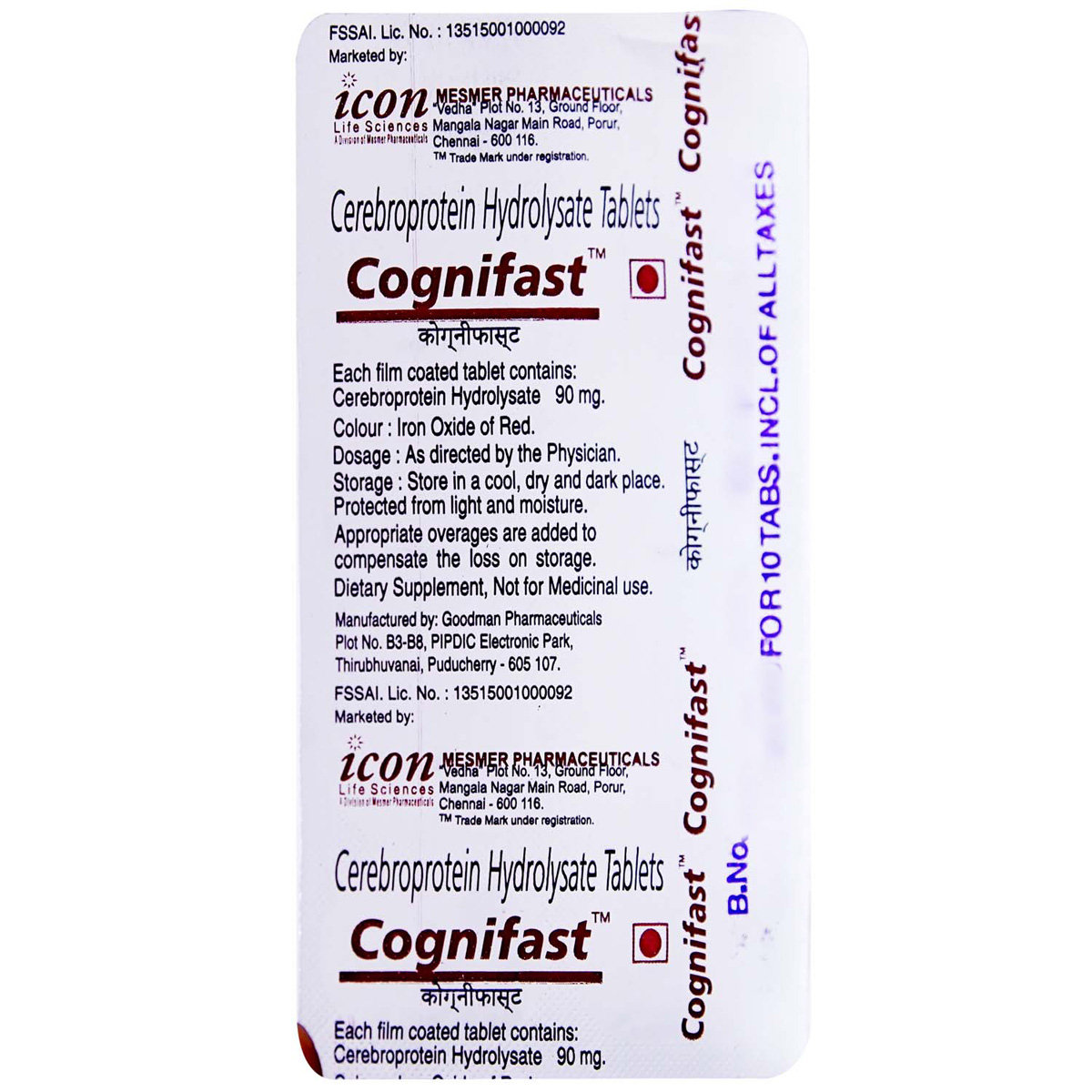
MRP ₹239
(Inclusive of all Taxes)
₹35.9 Cashback (15%)
know your delivery time
Provide Delivery Location
Composition :
Manufacturer/Marketer :
Consume Type :
Expires on or after :
Return Policy :

Secure Payment

Trusted by 8 Crore Indians

Genuine Products
Therapeutic Class
Country of origin
Manufacturer/Marketer address
Author Details
We provide you with authentic, trustworthy and relevant information
Disclaimer
Alcohol
Safe if prescribed
It is unclear whether alcohol can be taken while using this medication. However, as a precautionary measure, it is best to avoid alcohol while taking medication.
Pregnancy
Consult your doctor
Please consult the doctor. There are no adequate and well-controlled studies on pregnant women. Your doctor will prescribe only if the benefits outweigh the risks.
Breast Feeding
Consult your doctor
Consult your doctor, and there is no substantial research yet on the use of Cognifast Tablet in breastfeeding/nursing mothers.
Driving
Safe if prescribed
Cognifast Tablet may cause side effects like Light-headedness or dizziness, and it may affect your ability to concentrate and drive. Hence, it is recommended not to drive or operate machinery until you are mentally alert. Seek medical attention if the symptoms persist longer.
Liver
Consult your doctor
Limited information was available for the use of Cognifast Tablet in patients with liver impairment. Please consult the doctor. Your doctor will prescribe only if the benefits outweigh the risks.
Kidney
Consult your doctor
Should not administer Cognifast Tablet in the presence of existing severe renal insufficiency.
Children
Safe if prescribed
Limited information was available for the use of Cognifast Tablet in paediatric patients. Please consult the doctor. Your doctor will prescribe only if the benefits outweigh the risks.
Product Substitutes
About Cognifast Tablet
Cognifast Tablet belongs to a group of medicines called central nervous system agents/neuroprotective agents, used to protect the nerves from damage and improve their survival due to various reasons such as injury, stroke, and Alzheimer's disease.
Cognifast Tablet contains Cerebroprotein Hydrolysate, which acts on the central nervous system in various ways to protect neurons and improve memory, attention, and vigilance.
Take Cognifast Tablet as prescribed. Depending on your medical condition, you should take Cognifast Tablet for as long as your doctor has prescribed it. In some cases, you may experience certain common side effects, such as headache, nausea, vertigo, increased sweating, agitation, fever, hallucinations, confusion, and flu. Most of these side effects do not require medical attention and will resolve gradually over time. However, you are advised to talk to your doctor if you experience these side effects persistently.
Inform your doctor if you have had an allergic reaction to Cognifast Tablet or any ingredients in it. Do not take Cognifast Tablet if you are pregnant or breastfeeding unless prescribed. Should not administer Cognifast Tablet in the presence of existing severe renal insufficiency. Cognifast Tablet may cause side effects like Light-headedness or dizziness, affecting your ability to concentrate and drive. Hence, it is recommended not to drive or operate machinery until you are mentally alert. Seek medical attention if the symptoms persist longer. Limited information was available for the use of Cognifast Tablet in paediatric patients. Please consult the doctor. Your doctor will prescribe only if the benefits outweigh the risks. Keep your doctor informed about your health condition and all the medicines you take before taking Cognifast Tablet to rule out any side effects.
Uses of Cognifast Tablet
Medicinal Benefits Mweb
Key Benefits
Cognifast Tablet contains Cerebroprotein Hydrolysate, which belongs to a group of medicines called central nervous system agents primarily, used to treat the head injury, stroke, and Alzheimer's disease by protecting the nerves from damage and improving their survival. It acts on the central nervous system in various ways to protect neurons and improve memory, attention, and vigilance.
Directions for Use
Side Effects of Cognifast Tablet
- Headache
- Nausea
- Vertigo
- Increased sweating
- Agitation
- Fever
- Hallucinations
- Confusion
- Flu
Drug Warnings
Inform your doctor if you have had an allergic reaction to Cognifast Tablet or any ingredients in it. Do not take Cognifast Tablet if you are pregnant or breastfeeding unless prescribed. Should not administer Cognifast Tablet in the presence of existing severe renal insufficiency. And should not mix Cognifast Tablet with balanced amino-acid solutions in one infusion. Cognifast Tablet may cause side effects like Light-headedness or dizziness, and it may affect your ability to concentrate and drive. Hence, it is recommended not to drive or operate machinery until you are mentally alert. Seek medical attention if the symptoms persist longer. It is not known whether it is safe to consume alcohol with Cognifast Tablet . However, as a precautionary measure, it is advisable not to take or limit alcohol. Limited information was available for the use of Cognifast Tablet in paediatric patients. Please consult the doctor. Your doctor will prescribe only if the benefits outweigh the risks. Keep your doctor informed about your health condition and all the medicines you take before taking Cognifast Tablet to rule out any side effects.
Drug-Drug Interactions
Drug-Drug Interactions
Login/Sign Up
Drug-Food Interactions
Drug-Food Interactions
Login/Sign Up
Drug-Diseases Interactions
Drug-Diseases Interactions
Login/Sign Up
Habit Forming
Diet & Lifestyle Advise
- Follow a healthy lifestyle as it helps in improving overall health and possibly protects the brain.
- Create a bedtime routine as it helps in relaxation and stress reduction.
- Include greenery, leafy vegetables and other non-starchy vegetables (tomatoes, broccoli, cauliflower, etc.) in your diet.
- Eat strawberries, blueberries, blackberries, and nuts, as they reduce inflammation in the brain.
- Use olive oil for cooking purposes. It contains healthy fats that promote brain health.
- Eat whole grains such as oats, quinoa, and brown rice that are rich in nutrients.
- Opt for fish oil or eat fish (preferably fatty fish like salmon, sardines, trout, and tuna) at least once a week. They are rich in omega-3 fatty acids essential for the brain's normal functioning.
- Quitting smoking and not drinking alcohol is the best strategy to lower the risk of any complications.
All Substitutes & Brand Comparisons
RX
Cerefeast Tablet 10's
Sigmund Promedica
₹177
(₹15.93 per unit)
25% CHEAPERRX
Out of StockCognitab 90 mg Tablet 10's
Helen Pharmaceuticals
₹180
(₹16.2 per unit)
24% CHEAPERRX
Cebrovit 90 Tablet 10's
Tripada Lifecare Pvt Ltd
₹195.5
(₹17.6 per unit)
18% CHEAPER

Have a query?
Buy best C.n.s Drugs products by
Intas Pharmaceuticals Ltd
Sun Pharmaceutical Industries Ltd
Torrent Pharmaceuticals Ltd
Alkem Laboratories Ltd
Abbott India Ltd
Cipla Ltd
Alteus Biogenics Pvt Ltd
Micro Labs Ltd
Lupin Ltd
Ipca Laboratories Ltd
D D Pharmaceuticals Pvt Ltd
Icon Life Sciences
Mankind Pharma Pvt Ltd
Tripada Healthcare Pvt Ltd
Arinna Lifesciences Ltd
Linux Laboratories Pvt Ltd
East West Pharma India Pvt Ltd
La Renon Healthcare Pvt Ltd
Talent India Pvt Ltd
Tas Med India Pvt Ltd
Zydus Healthcare Ltd
Cnx Health Care Pvt Ltd
Eris Life Sciences Ltd
Leeford Healthcare Ltd
Emcure Pharmaceuticals Ltd
Macleods Pharmaceuticals Ltd
Sigmund Promedica
Aristo Pharmaceuticals Pvt Ltd
Dr Reddy's Laboratories Ltd
Troikaa Pharmaceuticals Ltd
Consern Pharma Ltd
Zydus Cadila
Shine Pharmaceuticals Ltd
Wockhardt Ltd
Ardent Life Sciences Pvt Ltd
Crescent Formulations Pvt Ltd
Theo Pharma Pvt Ltd
Reliance Formulation Pvt Ltd
Ikon Pharmaceuticals Pvt Ltd
Propel Healthcare
Neon Laboratories Ltd
Jagsam Pharma
Msn Laboratories Pvt Ltd
Morepen Laboratories Ltd
Pulse Pharmaceuticals
Sanofi India Ltd
Med Manor Organics Pvt Ltd
Hetero Healthcare Pvt Ltd
Novartis India Ltd
Crescent Therapeutics Ltd
Elder Pharmaceuticals Ltd
Solvate Laboratories Pvt Ltd
Akumentis Healthcare Ltd
Mova Pharmaceutical Pvt Ltd
Psyco Remedies Ltd
Tripada Lifecare Pvt Ltd
Ajanta Pharma Ltd
Cyrus Remedies Pvt Ltd
Medishri Healthcare Pvt Ltd
Cadila Healthcare Ltd
Glenmark Pharmaceuticals Ltd
Matteo Health Care Pvt Ltd
Hbc Life Sciences Pvt Ltd
Lyf Healthcare
Matias Healthcare Pvt Ltd
Mesmer Pharmaceuticals
Alembic Pharmaceuticals Ltd
Capital Pharma
Crescent Pharmaceuticals
Medopharm Pvt Ltd
Alniche Life Sciences Pvt Ltd
Kivi Labs Ltd
Talin Remedies Pvt Ltd
USV Pvt Ltd
Quince Lifesciences Pvt Ltd
Solis Pharmaceuticals
Infivis Life Care
Zuventus Healthcare Ltd
Cadila Pharmaceuticals Ltd
Pfizer Ltd
Wallace Pharmaceuticals Pvt Ltd
A N Pharmacia Laboratories Pvt Ltd
Blue Cross Laboratories Pvt Ltd
Jenburkt Pharmaceuticals Ltd
Lia Life Sciences Pvt Ltd
Mano Pharma
Medley Pharmaceuticals Ltd
Primus Remedies Pvt Ltd
FDC Ltd
Maneesh Pharmaceuticals Ltd
Apex Laboratories Pvt Ltd
Gagnant Healthcare Pvt Ltd
Ozone Pharmaceuticals Ltd
RPG Life Sciences Ltd
Strides Shasun Ltd
Unichem International
GlaxoSmithKline Pharmaceuticals Ltd
Kuresys Labs Pvt Ltd
LA Pharma
Trion Pharma India Llp



